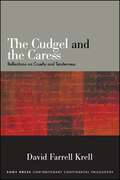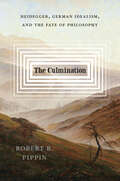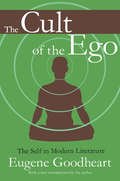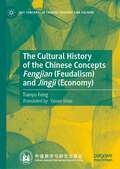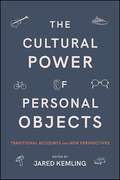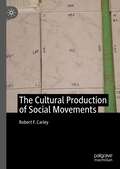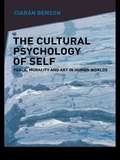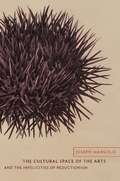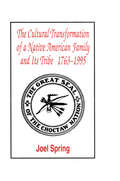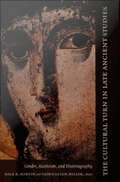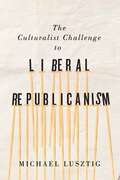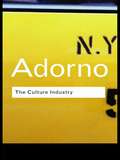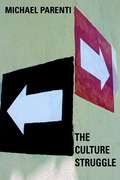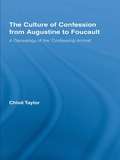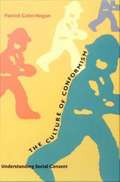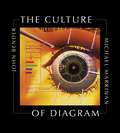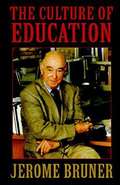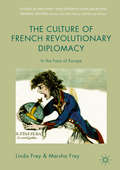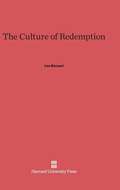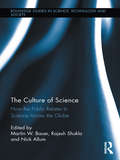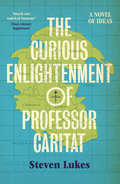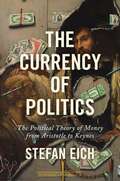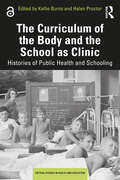- Table View
- List View
The Cudgel and the Caress: Reflections on Cruelty and Tenderness (SUNY series in Contemporary Continental Philosophy)
by David Farrell KrellThe Cudgel and the Caress explores the enduring significance of tenderness and cruelty in a range of works across philosophy, psychoanalysis, and literature. Divided into two parts, the book initially focuses on tenderness, with David Farrell Krell delivering original readings of Homer's Iliad, Sophocles's Antigone, and writings by Hölderlin, Hegel, Freud, and Derrida that deal with the importance of tenderness and the tragic consequences of its absence. Part One concludes with an extended reading of Robert Musil's Man Without Qualities, in which Krell analyzes the tender relationship between Ulrich and Agathe. In Part Two, Krell begins by examining Otto Rank's Birth Trauma, which reflects on the tenderness of gestation in the womb and the cruel necessity of birth. He then turns to an examination of cruelty in general, focusing on Derrida's challenge to contemporary psychoanalysis, his opposition between Kant and Nietzsche, and his analysis (and indictment) of the death penalty. Groundbreaking and insightful, the book provides a rare philosophical treatment of subjects vital to the world we live in.
The Culmination: Heidegger, German Idealism, and the Fate of Philosophy
by Robert B. PippinA provocative reassessment of Heidegger’s critique of German Idealism from one of the tradition’s foremost interpreters. Heidegger claimed that Western philosophy ended—failed, even—in the German Idealist tradition. In The Culmination, Robert B. Pippin explores the ramifications of this charge through a masterful survey of Western philosophy, especially Heidegger’s critiques of Hegel and Kant. Pippin argues that Heidegger’s basic concern was to determine sources of meaning for human life, particularly those that had been obscured by Western philosophy’s attention to reason. The Culmination offers a new interpretation of Heidegger, German Idealism, and the fate of Western rationalism.
The Culmination: Heidegger, German Idealism, and the Fate of Philosophy
by Robert B. Pippin“By far the deepest and most thorough study of Heidegger’s reading of Hegel and its centrality to his account of the history of metaphysics.” —Taylor Carman, Barnard CollegeA provocative reassessment of Heidegger’s critique of German Idealism from one of the tradition’s foremost interpreters.Heidegger claimed that Western philosophy ended—failed, even—in the German Idealist tradition. In The Culmination, Robert B. Pippin explores the ramifications of this charge through a masterful survey of Western philosophy, especially Heidegger’s critiques of Hegel and Kant. Pippin argues that Heidegger’s basic concern was to determine sources of meaning for human life, particularly those that had been obscured by Western philosophy’s attention to reason. The Culmination offers a new interpretation of Heidegger, German Idealism, and the fate of Western rationalism.“Can thought explain why it cares about what it thinks? Can the mind account for its own minding? Drawing on his decades of reflection on German Idealism, Pippin supports Heidegger’s answer: no. The implications for the history of philosophy and for its future are profound.” —Richard Polt, Xavier University“The Culmination is rich and complex and . . . fascinating.” —European Journal of Philosophy“An indispensable resource for anyone concerned about the future of philosophy.” —Steven Crowell, Rice University
The Cult of the Ego: The Self in Modern Literature
by Eugene GoodheartGoethe once remarked that "every emancipation of the spirit is pernicious unless there is a corresponding growth of control." This remark may be taken as a motto for Eugene Goodheart's study of an aspect of the cultural history of the past two hundred years. In separate chapters on Rousseau, Stendhal, Goethe and Carlyle, Dostoevsky, Whitman, Lawrence, and Joyce, Goodheart discovers a community of concern which he calls the cult of the ego. All these writers examined here in one way or another deal with "the emancipation of the spirit" with all its promise and danger. The characteristic attempt is to "extend the boundaries of the self by going beyond the area of safety" and. thereby risking even the destruction of the self. They advance the claims of the self at the same time seeking the controls that will secure these claims. The artist-hero becomes the central figure in Goodheart's volume, since it is he who comes to exemplify the possibilities of the cult of the ego. Their efforts, Goodheart argues, have ambiguous results. The seeds of contemporary nihilism are in the failures of these writers to master the chaos of egoism, which they helped engender. But their heroism was partly in the effort of resistance: moral, religious, aesthetic. In a large portion of modern literature, resistance has been abandoned either out of exhaustion or out of fascination with the destructive tendency of modern life: in Beckett's phrase, "a world endlessly collapsing." In his introduction to this first paperback edition, Goodheart discusses the book's origin in relation to the counter-cultural unrest of 1968 when it was first published and weighs its theme of the emancipated self against current postmodern assertions of the "death of the author." The Cult of the Ego is written with admirable clarity and economy. Its interests are literary, moral and political. Moving freely and knowledgeably among various national literatures, Goodheart has made an original and valuable contribution to the field of comparative literature. Eugene Goodheart is Edytha Macy Gross Professor of Humanities Emeritus at Brandeis University. Among his books are Novel Practices: Classic Modern Fiction, Modernism and the Critical Spirit, Culture and the Radical Conscience, and Confessions of a Secular Jew: A Memoir, all available from Transaction.
The Cultural History of the Chinese Concepts Fengjian (Key Concepts in Chinese Thought and Culture)
by Tianyu FengThis book interprets the typical Chinese concepts of fengjian (feudalism) and jingji (economy) by reviewing the mistranslation and mismatching of concepts from ancient to modern times and from a Western language to Chinese and exploring Chinese and Western acculturation, which is in line with Mr. Chen Yinque’s theory—”To interpret a Chinese character is to write a history of culture”. In the coordinates of time and space for the transformation of Chinese concepts from ancient to modern times and their translation from Western languages, this book explores the generation and evolution of Chinese concepts; using the semantic window of Chinese characters, the book reviews the historical and cultural connotations of the semantic changes and the history of the long-lasting culture of Chinese characters. This volume moves from reviewing the semantic changes of fengjian and jingji to elaborating concepts of thought; it makes the study of the history of terms and concepts the study of the history of culture and thought; it analyzes words as part of cultural history to welcome the era of cultural and historical research with a focus on words.This book is both scholarly and readable, satisfying both the academic needs of specialized researchers and the cultural curiosity of those with secondary education or above.
The Cultural Power of Personal Objects: Traditional Accounts and New Perspectives
by Randall E. Auxier and John R. ShookThe Cultural Power of Personal Objects seeks to understand the value and efficacy of objects, places, and times that take on cultural power and reverence to such a degree that they are treated (whether metaphorically or actually) as "persons," or as objects with "personality"—they are living objects. Featuring both historical and theoretical sections, the volume details examples of this practice, including the wampum of certain Native American tribes, the tsukumogami of Japan, the sacred keris knives of Java, the personality of seagoing ships, the ritual objects of Hinduism and Ancient Egypt, and more. The theoretical contributions aim to provide context for the existence and experience of personal objects, drawing from a variety of disciplines. Offering a variety of new philosophical perspectives on the theme, while grounding the discussion in a historical context, The Cultural Power of Personal Objects broadens and reinvigorates our understanding of cultural meaning and experience.
The Cultural Production of Social Movements
by Robert F. CarleyThe Cultural Production of Social Movements offers a theory of cultural practices, protest tactics, strategic planning and deliberation, and movement organizational structures: “ideological contention.” It is a theory of ideology “from below.” The Cultural Production of Social Movements shows how conflicts—both with external political forces and disagreements, dissensus, and the decision-making process internal to social movements—produce knowledge and meanings that, in turn, impact upon and change the practices that contribute to how social movements are structured and organized. The Cultural Production of Social Movements theorizes the relationship between consciously held superordinate ideas, the changing composition of progressive and oppositional social struggles, and the social worlds they hope to inhabit. Analyzing the Black Panther Party, specifically Kathleen Cleaver’s break with the Student Non-violent Coordinating Committee and her contributions to the Party, Operaismo (or Workerism) in Italy and the relationship between shifting organizational strategies, inventive tactics, and novel and expansive ways to theorize class struggles, and the communal composition of “Worker-Recovered Enterprise Movements” in contemporary Argentina, this book shows how movement ideologies change and how meanings structure organizations, mobilizations, and futures. In The Cultural Production of Social Movements ideology is neither a static set of principles, nor is an unconscious orientation towards power and governance. Rather, it is the contentious, democratizing, and deliberative processes—which become realized as tactics in protests, struggles, defeats, and victories—that makes the relationship between movements, and what they “mean” conscious to its participants.
The Cultural Psychology of Self: Place, Morality and Art in Human Worlds
by Ciaran BensonPhilosophers and psychologists both investigate the self, but often in isolation from one another. this book brings together studies by philosophers and psychologists in an exploration of the self and its function. It will be of interest to all those involved in philosophy, psychology and sociology.
The Cultural Space of the Arts and the Infelicities of Reductionism
by Joseph MargolisJoseph Margolis, known for his considerable contributions to the philosophy of art and aesthetics, pragmatism, and American philosophy, has focused primarily on the troublesome concepts of culture, history, language, agency, art, interpretation, and the human person or self. For Margolis, the signal problem has always been the same: how can we distinguish between physical nature and human culture? How do these realms relate? The Cultural Space of the Arts and the Infelicities of Reductionism identifies a conceptual tendency that can be drawn from the work of the twentieth century's best-known analytic philosophers of art: Arthur Danto, Richard Wollheim, Kendall Walton, Nelson Goodman, Monroe Beardsley, Noël Carroll, and Jerrold Levinson, among others. This trend threatens to impoverish our grasp and appreciation of the arts by failing to do justice to the culturally informed nature of the arts themselves. Through his analysis, Margolis sets out to retrieve an adequate picture of the essential differences between physical nature and human culture& mdash;particularly through language, history, meaning, significance, the emergence of the human self or person, and the essential features of human life& mdash;all to explain how such difference bears on our perception of paintings and literature. Clearly argued and provocatively engaging, Margolis's work reestablishes what is essential to a productive encounter with art.
The Cultural Space of the Arts and the Infelicities of Reductionism (Columbia Themes in Philosophy, Social Criticism, and the Arts)
by Joseph MargolisJoseph Margolis, known for his considerable contributions to the philosophy of art and aesthetics, pragmatism, and American philosophy, has focused primarily on the troublesome concepts of culture, history, language, agency, art, interpretation, and the human person or self. For Margolis, the signal problem has always been the same: how can we distinguish between physical nature and human culture? How do these realms relate?The Cultural Space of the Arts and the Infelicities of Reductionism identifies a conceptual tendency that can be drawn from the work of the twentieth century's best-known analytic philosophers of art: Arthur Danto, Richard Wollheim, Kendall Walton, Nelson Goodman, Monroe Beardsley, Noël Carroll, and Jerrold Levinson, among others. This trend threatens to impoverish our grasp and appreciation of the arts by failing to do justice to the culturally informed nature of the arts themselves. Through his analysis, Margolis sets out to retrieve an adequate picture of the essential differences between physical nature and human culture-particularly through language, history, meaning, significance, the emergence of the human self or person, and the essential features of human life-all to explain how such difference bears on our perception of paintings and literature. Clearly argued and provocatively engaging, Margolis's work reestablishes what is essential to a productive encounter with art.
The Cultural Transformation of A Native American Family and Its Tribe 1763-1995: A Basket of Apples (Sociocultural, Political, and Historical Studies in Education)
by Joel SpringThis book describes the impact of U.S. government civilization and education policies on a Native American family and its tribe from 1763 to 1995. While engaged in a personal quest for his family's roots in Choctaw tribal history, the author discovered a direct relationship between educational policies and their impact on his family and tribe. Combining personal narrative with traditional historical methodology, the author details how federal education policies concentrated power in a tribal elite that controlled its own school system in which students were segregated by social class and race. The book begins with the cultural differences that existed between Native Americans and European colonists. The civilization policies discussed begin in the 1790s when both Presidents George Washington and Thomas Jefferson searched for a means of gaining the lands occupied by the southern tribes, including the Choctaws. The story involves a complicated interaction between government policies, the agenda of white educators, and the desires of Native Americans. In a broader context, it is a study of the evolution of an American family from the extended support of the community and clan of the past, to the present world of single parents adrift without community or family safety nets.
The Cultural Turn in Late Ancient Studies: Gender, Asceticism, and Historiography
by Dale B. Martin Patricia Cox MillerThe essays in this provocative collection exemplify the innovations that have characterized the relatively new field of late ancient studies. Focused on civilizations clustered mainly around the Mediterranean and covering the period between roughly 100 and 700 CE, scholars in this field have brought history and cultural studies to bear on theology and religious studies. They have adopted the methods of the social sciences and humanities--particularly those of sociology, cultural anthropology, and literary criticism. By emphasizing cultural and social history and considerations of gender and sexuality, scholars of late antiquity have revealed the late ancient world as far more varied than had previously been imagined. The contributors investigate three key concerns of late ancient studies: gender, asceticism, and historiography. They consider Macrina's scar, Mary's voice, and the harlot's body as well as Augustine, Jovinian, Gregory of Nazianzus, Julian, and Ephrem the Syrian. Whether examining how animal bodies figured as a means for understanding human passion and sexuality in the monastic communities of Egypt and Palestine or meditating on the almost modern epistemological crisis faced by Theodoret in attempting to overcome the barriers between the self and the wider world, these essays highlight emerging theoretical and critical developments in the field. Contributors. Daniel Boyarin, David Brakke, Virginia Burrus, Averil Cameron, Susanna Elm, James E. Goehring, Susan Ashbrook Harvey, David G. Hunter, Blake Leyerle, Dale B. Martin, Patricia Cox Miller, Philip Rousseau, Teresa M. Shaw, Maureen A. Tilley, Dennis E. Trout, Mark Vessey
The Culturalist Challenge to Liberal Republicanism (McGill-Queen's Studies in the History of Ideas #72)
by Michael LusztigAn exploration of the volatile mix of politics and diversity.
The Culture Industry: Selected Essays on Mass Culture (Routledge Classics)
by J. M. Bernstein Theodor W AdornoThe creation of the Frankfurt School of critical theory in the 1920s saw the birth of some of the most exciting and challenging writings of the twentieth century. It is out of this background that the great critic Theodor Adorno emerged. His finest essays are collected here, offering the reader unparalleled insights into Adorno's thoughts on culture. He argued that the culture industry commodified and standardized all art. In turn this suffocated individuality and destroyed critical thinking. At the time, Adorno was accused of everything from overreaction to deranged hysteria by his many detractors. In today's world, where even the least cynical of consumers is aware of the influence of the media, Adorno's work takes on a more immediate significance. The Culture Industry is an unrivalled indictment of the banality of mass culture.
The Culture Struggle
by Michael ParentiOne of America's most astute and engaging political analysts, Michael Parenti shows us that culture is a changing process and the product of a dynamic interplay between a wide range of social and political interests. Drawing from cultures around the world, Parenti shows that beliefs and practices are readily subjected to political manipulation, and that many parts of culture are being commodified, separated from their group or communal origins, to be packaged and sold to those who can pay for them. Folk culture is giving way to a corporate market culture. Art, science, medicine, and psychiatry can be used as instruments of cultural control, and even marriage, the "foundation of society," has been misused by heterosexuals across the centuries.Using vivid examples and riveting arguments throughout, ranging from the everyday to the esoteric, and penned with eloquence and irony, The Culture Struggle presents a collection of snapshots of our time.
The Culture of Confession from Augustine to Foucault: A Genealogy of the 'Confessing Animal'
by Chloe TaylorDrawing on the work of Foucault and Western confessional writings, this book challenges the transhistorical and commonsense views of confession as an innate impulse resulting in the psychological liberation of the confessing subject. Instead, confessional desire is argued to be contingent and constraining, and alternatives to confessional subjectivity are explored.
The Culture of Conformism: Understanding Social Consent
by Patrick Colm Hogan"[Hogan's] goal is not merely to explain but to provide tools of understanding that will be of practical value to those who struggle for justice and freedom. Drawing from an impressive array of sources, his valuable study advances both ends considerably, no mean accomplishment. "--Noam Chomsky In this wide-ranging and informative work, Patrick Colm Hogan draws on cognitive science, psychoanalysis, and social psychology to explore the cultural and psychological components of social consent. Focusing in particular on Americans' acquiescence to a system that underpays and underrepresents the vast majority of the population, Hogan moves beyond typical studies of this phenomenon by stressing more than its political and economic dimensions. With new insights into particularly insideous forms of consent such as those manifest in racism, sexism, and homophobia, The Culture of Conformism considers the role of emotion as it works in conjunction with belief and with the formation of group identity. Arguing that coercion is far more pervasive in democratic societies than is commonly recognized, Hogan discusses the subtle ways in which economic and social pressures operate to complement the more obviously violent forces of the police and military. Addressing issues of narcissism, self-esteem, and empathy, he also explains the concept of "rational" conformity--that is, the degree to which our social consent is based on self-interest--and explores the cognitive factors that produce and sustain social ideology. Social activists, economic theorists, social psychologists, and political scientists will be intrigued and informed by this book.
The Culture of Diagram
by John Bender Michael MarrinanThe diagram, write Bender (interdisciplinary studies, Stanford U.) and Marrinan (art history, Stanford U.), "is a proliferation of manifestly selective packets of dissimilar data correlated in an explicitly process-oriented array that has some of the attributes of a representation but is situated in the world like an object." They present here an "archaeology of the diagram" that centers on this understanding of diagram as process. Their discussion ranges across 250 years, from the diagrams of Diderot's Encylopédie to diagrammatic forms of representation in quantum mechanics, and across multiple fields of human endeavor, including mathematics, art, and medicine. Annotation ©2010 Book News, Inc., Portland, OR (booknews.com)
The Culture of Education
by Jerome BrunerThis is a book of essays about education. In this commentary on the possibilities of education, eminent psychologist Jerome Bruner explains how education can usher children into their culture, though it often fails to do so. Bruner explores new and rich ways of approaching many of the classical problems that perplex educators.
The Culture of French Revolutionary Diplomacy: In The Face Of Europe (Studies In Diplomacy And International Relations Ser.)
by Linda Frey Marsha FreyThis book examines the culture of the French diplomatic corps from 1789 to 1799. It analyzes how the French revolutionaries attempted, albeit unsuccessfully, to transform the diplomatic culture of the old regime, notably in etiquette, language and dress and how the ideology and dynamic of the Revolution affected certain aspects of international affairs.
The Culture of Redemption
by Leo BersaniIn this frankly polemical book, Leo Bersani does battle with a pervasive view in modern culture: the idea that art can save us from the catastrophes of history and sexuality. Bersani questions this assumption and ranges widely through modern literature to prove his point. He makes fascinating comparisons between Melanie Klein and Marcel Proust; the enigmatic and more unresolved works of Freud; Walter Benjamin, Baudelaire, and Nietzsche; André Malraux and Georges Bataille; Flaubert, Melville, Joyce and Thomas Pynchon.
The Culture of Science: How the Public Relates to Science Across the Globe (Routledge Studies in Science, Technology and Society)
by Rajesh Shukla Martin W. Bauer Nick AllumThis book offers the first comparative account of the changes and stabilities of public perceptions of science within the US, France, China, Japan, and across Europe over the past few decades. The contributors address the influence of cultural factors; the question of science and religion and its influence on particular developments (e.g. stem cell research); and the demarcation of science from non-science as well as issues including the ‘incommensurability’ versus ‘cognitive polyphasia’ and the cognitive (in)tolerance of different systems of knowledge.
The Curious Enlightenment of Professor Caritat
by Steven LukesThe Curious Enlightenment of Professor Caritat is a brilliant fictional journey through Western political philosophy by one of our most original thinkers. Professor Caritat, a middle-aged Candide, walks naively through the neighbouring countries of Utilitaria, Communitaria and Libertaria, in his quest to find the best of all possible worlds. Cut loose from the confines of his ivory tower, this wandering professor is made to confront the perplexed state of modern thinking in this dazzling comedy of ideas.From the Trade Paperback edition.
The Currency of Politics: The Political Theory of Money from Aristotle to Keynes
by Stefan EichMoney in the history of political thought, from ancient Greece to the Great Inflation of the 1970sIn the wake of the 2008 financial crisis, critical attention has shifted from the economy to the most fundamental feature of all market economies—money. Yet despite the centrality of political struggles over money, it remains difficult to articulate its democratic possibilities and limits. The Currency of Politics takes readers from ancient Greece to today to provide an intellectual history of money, drawing on the insights of key political philosophers to show how money is not just a medium of exchange but also a central institution of political rule.Money appears to be beyond the reach of democratic politics, but this appearance—like so much about money—is deceptive. Even when the politics of money is impossible to ignore, its proper democratic role can be difficult to discern. Stefan Eich examines six crucial episodes of monetary crisis, recovering the neglected political theories of money in the thought of such figures as Aristotle, John Locke, Johann Gottlieb Fichte, Karl Marx, and John Maynard Keynes. He shows how these layers of crisis have come to define the way we look at money, and argues that informed public debate about money requires a better appreciation of the diverse political struggles over its meaning.Recovering foundational ideas at the intersection of monetary rule and democratic politics, The Currency of Politics explains why only through greater awareness of the historical limits of monetary politics can we begin to articulate more democratic conceptions of money.
The Curriculum of the Body and the School as Clinic: Histories of Public Health and Schooling (Critical Studies in Health and Education)
by Helen Proctor Kellie BurnsThis collection brings together cutting-edge research on the history of embodiment, health and schooling in an international context. The book distinguishes a set of educational technologies, schooling practices and school-based public health programmes that organise and influence the bodies of children and young people, defining the curriculum of the body. Taking a historical approach, with a focus on the period in which mass schooling became an international phenomenon, the book is organised according to four major themes. The first positions the school as a modern clinical space, followed by the second that explores programmes and curricula which influence the discipline of and care for the body. The third section examines the role of the built environment on the organisation and experience of children’s bodies, and the final section outlines the pedagogies, rules and routines that determine how the body is treated and experienced in school. International and multidisciplinary in scope, this unique collection is of interest to postgraduate students and researchers in education and public health, as well as history, policy studies and sociology.
